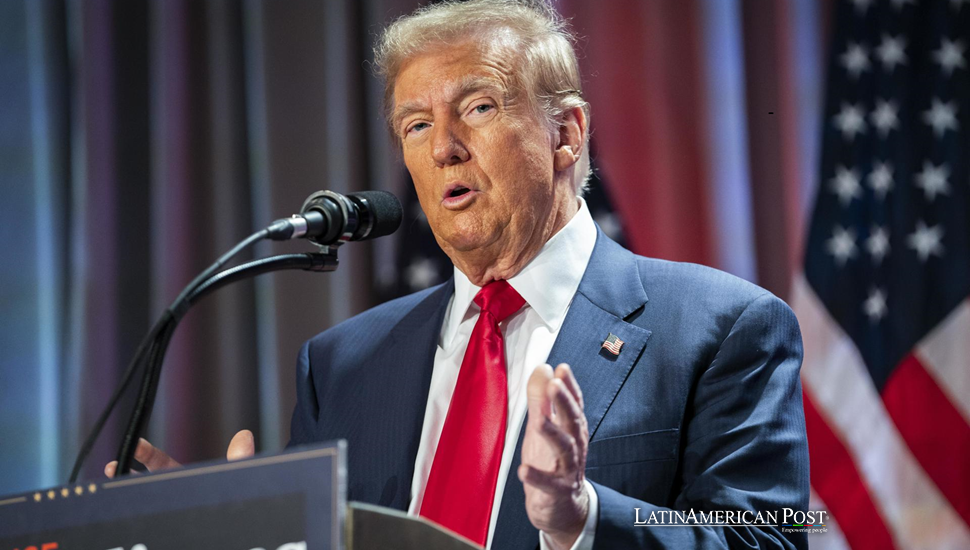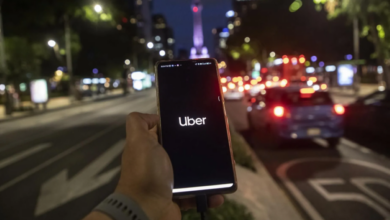How Could Latinos Back Trump? HBO Explains

HBO’s Night Is Not Eternal, a thought-provoking exploration of Cuban activism and unexpected alliances, challenges viewers to reconsider their political beliefs. The documentary shifts the narrative from ‘How could they?’ to ‘Why wouldn’t they?’, offering a fresh perspective on the struggle for democracy.
The Wrong Question
“How could they?” Many liberals ask this question when they see Cuban American voters supporting Trump or activists siding with controversial figures. This question needs to include the real issue. It goes nowhere. It is an emotional reaction that ignores the complex realities of political struggle.
Nanfu Wang’s documentary Night Is Not Eternal insists that this is the wrong question to ask. Instead, the film explores the nuances of the Cuban pro-democracy movement, embodied by activist Rosa María Payá, and the alliances she’s chosen to advance her cause. Through Wang’s lens, we see that the more relevant question is, “Why wouldn’t they?”
Why wouldn’t a Cuban activist leverage proximity to power, even if that power comes with authoritarian undertones? Why shouldn’t Cuban Americans, who have often escaped a hostile state, support a man opposed to the Cuban regime? Night Is Not Eternal wants us to ask why and what those who wish to change are doing. It doesn’t want us to dismiss their work.
The Complexity of Alliances
At the heart of Night Is Not Eternal lies the contrast between Wang’s ideals and Payá’s pragmatism. An authoritarian enemy, in whatever ideological form, is what Wang was exposed to in China. She needs to fight against Donald Trump, just as she needs to fight against Cuba’s dictatorship.
Payá seeks to partner with Trump to achieve her primary goal of introducing democracy to Cuba. She views Trump’s hardline policies, such as extending the embargo, as aligned with her objectives. Payá takes a risk by joining Trump’s rallies or going to events with people like Ron DeSantis. She thinks these actions illuminate Cuba’s problems.
This realistic strategy questions old beliefs about staying true to ideology. Payá’s choices push people to face tough questions about creating actual change. Is sticking to strong morals the best way, or is it wiser to adjust some beliefs to reach a bigger goal?
Watching Actions, Not Words
One of the film’s most captivating ideas is Wang’s understanding that beliefs often hide more than they show. Her time in China taught her to assess governments and leaders by what they do, not by what they say. Actions speak louder than words. She applies this same lens to Cuba and the U.S., drawing uncomfortable parallels between MAGA supporters in America and citizens in China who uncritically accept government propaganda.
Wang’s critique extends to how we categorize political struggles. Labels like “communism” and “capitalism” can create false binaries that distract from the underlying issues of power and control. In both China and Cuba, Wang observes, authoritarianism thrives under systems that outwardly claim to serve the people.
Payá, like Wang, recognizes these dynamics but approaches them differently. For her, the fight for Cuban democracy transcends mere ideologies and labels. She forges alliances based on practical considerations, believing that proximity to power can effect real change. This perspective, while divisive, underscores the limitations of idealism in the face of deeply entrenched oppressive systems.
Why Not Real Change?
As the film ends, Wang changes the big question from “How could they?” to “Why not?” Why not take bold steps to change the current rules? Why not accept the mess of political battles if it brings freedom closer? This idea is daring.
This question is essential beyond Cuba. It speaks to everyone trying to balance dreams with reality in the fight for justice. Wang’s movie tells us progress rarely comes from waiting for perfect things. Progress requires risk, choices, and constant effort. It demands action. Nonstop action.
For Payá, the risks are enormous. Her choices show she is ready to accept mistakes in reaching her main goal. For Wang, this practical way both challenges and enlightens. It pushes her and the viewers to rethink the nature of resistance and the complicated mix of political friendships, inspiring us with their courage and dedication.
What Now?
Night Is Not Eternal concludes with rebellion, not closure. It skips easy paths and shows that Payá’s methods and Wang’s beliefs are not perfect. Fans fight for freedom.
The movie asks, “Why not?” This question requires action. The story invites us to forget old ideas and see how hard it is to create change. History does not move naturally toward justice. People push it there and may find it difficult to relate to.
This question becomes more pressing in Cuban politics. The regime remains in power, and democratic forces struggle against their own repression. The need for bold, new steps seems very clear, motivating us to take action and engage with the issues at hand.
Ultimately, Night Is Not Eternal challenges us to ask better questions. Not “How could they?” but “Why wouldn’t they?” And, most importantly, “What now?” These questions prompt us to reflect on our own beliefs and actions, fostering a sense of introspection and thoughtfulness.
Also read : Colombian Manuel Turizo’s New Album 201 Is a Love Letter to Latin America
This article is adapted from Slates’s Why Support a Populist Strongman? Wrong Question report.





